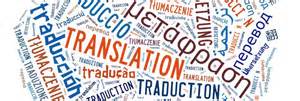 |
Facts
Duration: 1 semester
Period: Fall-Spring Semester
Credits: 5 ECTS
Contact Hours: 32
Self-study: 58
Hours: 90
|
Main Objectives
- to study the basic aspects of translation process;
- to study principles and mechanisms of translation using advanced research methods;
- to study modern approaches to translation study.
Learning Outcomes
Formation of competence:
а) intercultural:
- the ability to develop cultural and professional level independently and to master new methods of research;
- the ability to get and use new knowledge independently.
b) professional:
- the ability to organize and assess translation activity in accordance with international standards;
- the ability to develop and assess personal translation skills independently using advanced methods and technologies;
- ability to conduct independent researches according to the developed program.
Professor
Olga Nagel, PhD in Philology, Associate Professor, Faculty of Foreign languages, Department of English Philology
Course annotation
|
Course unit code |
Specialization 45.03.02 - Linguistics |
||||||
|
Course unit title |
Current issues of Translation theory |
||||||
|
Name(s), surname(s) and title of lecturer(s) |
Nagel Olga, PhD in Philology, Associate Professor, Faculty of Foreign languages, Department of English Philology |
||||||
|
Level of course |
Bachelor |
||||||
|
Semester |
5-6 |
||||||
|
ECTS credits |
5 |
||||||
|
Working hours |
Contact hours |
90 |
|||||
|
lectures |
32 |
||||||
|
seminars |
|||||||
|
practical classes |
|||||||
|
laboratory classes |
|||||||
|
consultations |
|||||||
|
Independent work |
58 |
||||||
Total |
90 |
||||||
|
Work placement |
none |
||||||
|
Language of instruction |
English |
||||||
|
Prerequisites |
Theoretical aspect of translation |
||||||
|
Objectives of the course |
Learning outcomes |
A student’s assessments methods |
|||||
|
aims: -to study the basic aspects of translation process; - to study principles and mechanisms of translation using advanced research methods; - to study modern approaches to translation study; |
Formation of competence: а)intercultural: - the ability to develop cultural and professional level independently and to master new methods of research; - the ability to get and use new knowledge independently. b) professional: - the ability to organize and assess translation activity in accordance with international standards; - the ability to develop and assess personal translation skills independently using advanced methods and technologies; - ability to conduct independent researches according to the developed program |
Presentations, tests in MOODLE, oral and written exam. |
|||||
|
Teaching methods |
Lectures, group work, delivery of individual presentations, independent study of literature, case studies, brainstorming, assignments. |
||||||
|
Course unit content |
Title |
Lecturers (hours) |
Self-study (hours) |
||||
|
Current issues in Translation Theory. Standards and norms. Translation assessment and criticism. |
6 |
10 |
|||||
|
Translation as a career. Professional skills, obligations and requirements. |
4 |
10 |
|||||
|
Translation methods and strategies |
4 |
8 |
|||||
|
Actively researched theoretical models of translation. Review. |
4 |
10 |
|||||
|
Cognitive aspect of translation. Cognitive and psycholinguistic models of translation. |
8 |
10 |
|||||
|
Cultural aspect of translation. |
6 |
10 |
|||||
|
32 |
58 |
||||||
|
Total 90 |
|||||||
|
Assessment requirements |
Student’s skills in this subject will be evaluated by means of presentations in the seminars, written tests and final examination. |
||||||
|
Assessment criteria |
The assessment of the presented works is carried out by the following criteria: – compliance of the contents to a subject; – existence of logical communication of stated information; – compliance of registration to requirements; – accuracy and literacy of a statement; – work is handed over in time. |
||||||
|
The composition of final accumulative mark |
Final accumulative mark consists of: 2 tests –15 % each, individual assignment – 20 %, group case analysis and presentation – 20 %, exam – 30 % |
||||||
|
Course outline arranged by |
Olga Nagel |
||||||
.png)